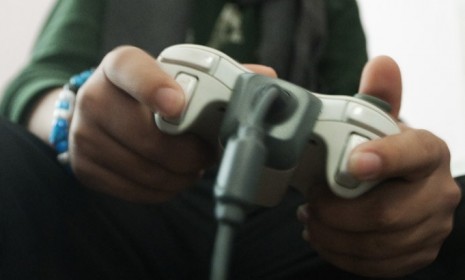The 'appalling' video-game hacking craze: 4 theories
SEGA has become the latest video-game company to admit a massive security breach. What's behind this trend?

A free daily email with the biggest news stories of the day – and the best features from TheWeek.com
You are now subscribed
Your newsletter sign-up was successful
Last week, SEGA announced that hackers had stolen personal information — including passwords, email addresses, and dates of birth — on 1.29 million of its SEGA Pass service users. The security breach came less than two months after the Sony Playstation Network was hacked, and after similar cases with video-game publishers Nintendo, Bethesda, Codemasters, and Epic. Why does this keep happening? Here, four theories:
1. Lack of encryption
While SEGA kept financial details about its customers on a separate, more secure server, it didn't encrypt basic information, says Ghacks.net. That was how Sony got hacked, too. Unencrypted information is "easily stealable." The lesson from this "appalling mess" is that consumers should be more careful about what information they share, companies should limit the details they require, and the government should demand that all personal information be encrypted.
The Week
Escape your echo chamber. Get the facts behind the news, plus analysis from multiple perspectives.

Sign up for The Week's Free Newsletters
From our morning news briefing to a weekly Good News Newsletter, get the best of The Week delivered directly to your inbox.
From our morning news briefing to a weekly Good News Newsletter, get the best of The Week delivered directly to your inbox.
2. The rise of "hacktivist groups"
This cyberattack revival is mostly about humiliating these companies, says Byron Acohido at USA Today. One hacker group, LulzSec, has absolved itself of involvement in the SEGA breach, but claimed responsibility for hacks of Sony, PBS, and even the U.S. Senate's website. Like the "renowned hacktivist group" Anonymous, LulzSec is out to expose security flaws and embarrass giant companies, out of "resentment" over the idea that "corporations own the internet."
3. The password problem
The problem goes far beyond video-game sites, says Mat Honan at Gizmodo, because "you know" these customers use their stolen passwords to log in elsewhere, too. "Because people are stupid." With an automated tool to crosscheck login info across multiple websites, the hackers would be "unstoppable." To protect identities, "pain in the ass" security measures must be put in place, things like Google's two factor authentication and biometric logins. More than anything, "it's time to abandon the password."
A free daily email with the biggest news stories of the day – and the best features from TheWeek.com
4. Actually, this has been happening for a long time
"There is no real outbreak of hacking," says John C. Dvorak at PC Mag. The "hacking scene" has been going on for decades. It just wasn't until bold-faced names like Sony were attacked that "the media perked up." Now that people are treating this as big news, "not a day goes by" without a hacking story.
-
 The ‘ravenous’ demand for Cornish minerals
The ‘ravenous’ demand for Cornish mineralsUnder the Radar Growing need for critical minerals to power tech has intensified ‘appetite’ for lithium, which could be a ‘huge boon’ for local economy
-
 Why are election experts taking Trump’s midterm threats seriously?
Why are election experts taking Trump’s midterm threats seriously?IN THE SPOTLIGHT As the president muses about polling place deployments and a centralized electoral system aimed at one-party control, lawmakers are taking this administration at its word
-
 ‘Restaurateurs have become millionaires’
‘Restaurateurs have become millionaires’Instant Opinion Opinion, comment and editorials of the day